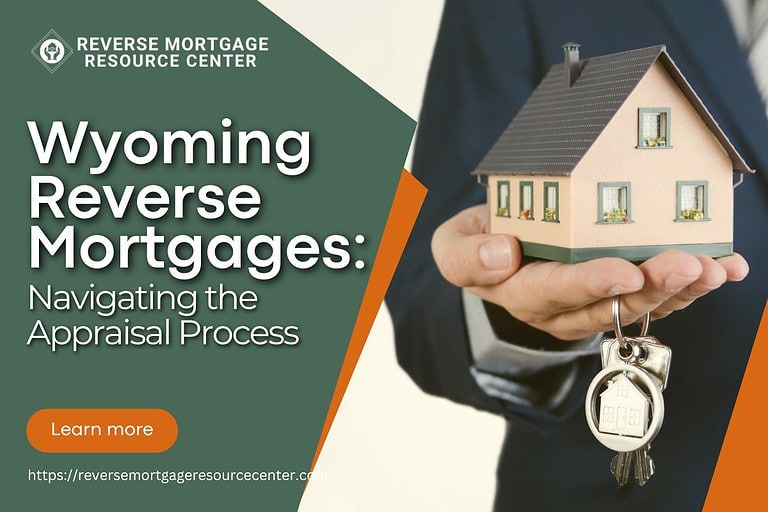Counseling for Utah Seniors: Navigating the Reverse Mortgage Process
As Utah elders begin their retirement journey, they frequently experience financial issues that can cast a shadow over their golden years. A reverse mortgage is one possible option for many seniors in this situation. However, the reverse mortgage process can be complicated and fraught with dangers. In this complete guide, we will go over the ins and outs of reverse mortgages in Utah and the significance of counseling to successfully navigate this process. Our goal is to give Utah seniors the knowledge and support they need to make sound financial decisions.
Understanding the Reverse Mortgage
What is a Reverse Mortgage?
A reverse mortgage is a financial product intended exclusively for seniors aged 62 and up. It enables homeowners to turn a portion of their home equity into tax-free cash without selling their property or incurring additional monthly mortgage payments. This financial instrument can bring much-needed relief to seniors encountering financial difficulties in retirement.
Types of Reverse Mortgages
Home Equity Conversion Mortgage (HECM): The most prevalent type of reverse mortgage is the Home Equity Conversion Mortgage (HECM), which is insured by the Federal Housing Administration (FHA). Payment alternatives for HECMs include a lump sum, monthly payments, or a line of credit.
Proprietary Reverse Mortgages: Private loans the government does not back are proprietary reverse mortgages. They may provide larger loan amounts but have stricter qualifying conditions and consequently greater expenses.
Single-Purpose Reverse Mortgages: These are often provided by state or local government entities and intended for a single purpose, such as home repairs or property taxes.
Eligibility Requirements
To be eligible for a reverse mortgage in Utah, seniors must meet the following requirements:
- Be at least 62 years old.
- Own and occupy the home as their primary residence.
- Have sufficient home equity.
- Complete a mandatory counseling session with a HUD-approved counselor.
The Role of Counseling
The Importance of Reverse Mortgage Counseling
Reverse mortgage counseling is critical in assisting elders in making informed decisions regarding their financial future. It is a required stage in the reverse mortgage process and serves several important functions:
- Education: Counselors give seniors a thorough grasp of how reverse mortgages function, including their benefits and potential pitfalls.
- Financial Assessment: Counselors evaluate seniors’ financial conditions to determine whether a reverse mortgage is viable. They look into alternative solutions and make sure seniors understand their financial situation.
- Loan Comparison: Counselors examine several reverse mortgage choices, such as interest rates, fees, and repayment terms, to assist seniors in selecting the best loan for their circumstances.
- Safeguarding Against Scams: Seniors are exposed to scams and exploitative loan tactics. Counseling for reverse mortgages assists elders in identifying and avoiding fraudulent scams.
- Legal and Ethical Considerations: Counselors ensure that seniors completely grasp the legal and ethical implications of reverse mortgages and their obligations and rights.
Finding a HUD-Approved Counselor
Seniors in Utah can locate HUD-approved reverse mortgage counselors by visiting the United States Department of Housing and Urban Development (HUD) website or calling local housing counseling services. Working with a qualified counselor is critical to ensuring that the information and assistance obtained are accurate and unbiased.

The Reverse Mortgage Process
Application and Financial Assessment
Choosing a Lender: After counseling, seniors can begin the application process by choosing a lender or broker. It’s a good idea to seek estimates from several lenders to compare terms and rates.
Financial Assessment: Lenders will evaluate the senior’s financial condition, including credit history, income, and debts, to determine eligibility and the amount that can be borrowed.
Loan Approval and Closing
Appraisal: An assessment of the home’s value is performed to calculate the maximum loan amount. To qualify for a reverse mortgage, the residence must meet specific criteria.
Underwriting: The lender examines the application and supporting documentation to ensure all requirements are met.
Loan Approval: Once the lender has approved the loan, the senior will receive a written offer with the terms and circumstances.
Closing: The last step is to sign the loan documentation. Seniors are encouraged to thoroughly analyze the paperwork and, if necessary, seek legal advice.
Receiving Funds
Payment Options: Seniors have the option of receiving their funds in a lump sum, monthly installments, a line of credit, or a combination of these.
Financial Freedom: The funds from a reverse mortgage can be utilized for anything, including everyday costs, medical bills, house improvements, and even travel.
Repayment
Loan Repayment: Typically, reverse mortgage repayment is postponed until the homeowner no longer occupies the home as their primary residence. This could be due to selling the home, moving, or passing away.
Heirs and Inheritance: Heirs can repay the loan or sell the residence to clear the debt. The heirs receive the remaining equity if the home’s worth exceeds the loan balance.
Pros and Cons of Reverse Mortgages
Pros
Financial Flexibility: Reverse mortgages allow seniors to access funds without selling their houses.
No Monthly Payments: Seniors are exempt from making monthly mortgage payments as long as they live on the property.
Tax-Free Income: Reverse mortgage funds are normally not considered taxable income.
Homeownership Preservation: Seniors can stay home while drawing on their equity.
No Repayment Until Leaving the Home: Repayment is postponed until the homeowner permanently departs the home.
Cons
Accumulating Interest: As interest accumulates, the loan sum rises over time, diminishing the home’s equity.
Fees and Costs: Reverse mortgages have fees and closing costs that can be considerable.
Impact on Heirs: If heirs desire to maintain the home, the loan balance must be repaid, which can be a financial strain.
Home Value Fluctuations: Market fluctuations might alter the home equity available to seniors.
Alternatives to Reverse Mortgages
While reverse mortgages may be a viable choice for certain Utah seniors suffering financial difficulties, it is critical to consider all options before deciding. Among these alternatives are:
Downsizing: Selling your present house and buying a smaller, more affordable one can help you save for retirement.
Home Equity Line of Credit (HELOC): A HELOC allows seniors to borrow against home equity while remaining homeowners. It has lower initial and ongoing fees than reverse mortgages.
Budgeting and Financial Planning: Working with a financial advisor to develop a budget and plan for retirement expenses will help you manage financial issues without using up your home equity.
Government Assistance Programs: Utah seniors may be eligible for various government assistance programs to help them financially throughout retirement.
REVERSE MORTGAGE RESOURCE CENTER ~LIVE LIFE ON YOUR TERMS~
Our Lending Team has been serving our clients since 2004. We are passionate about serving our clients with integrity to help them achieve their financial goals.







